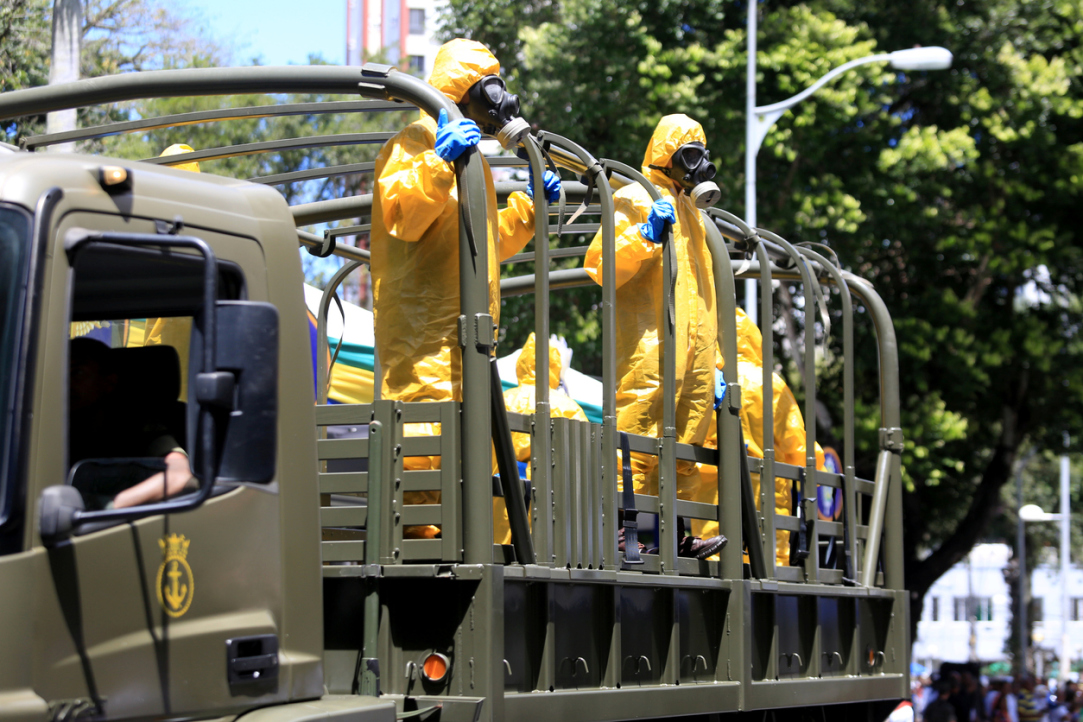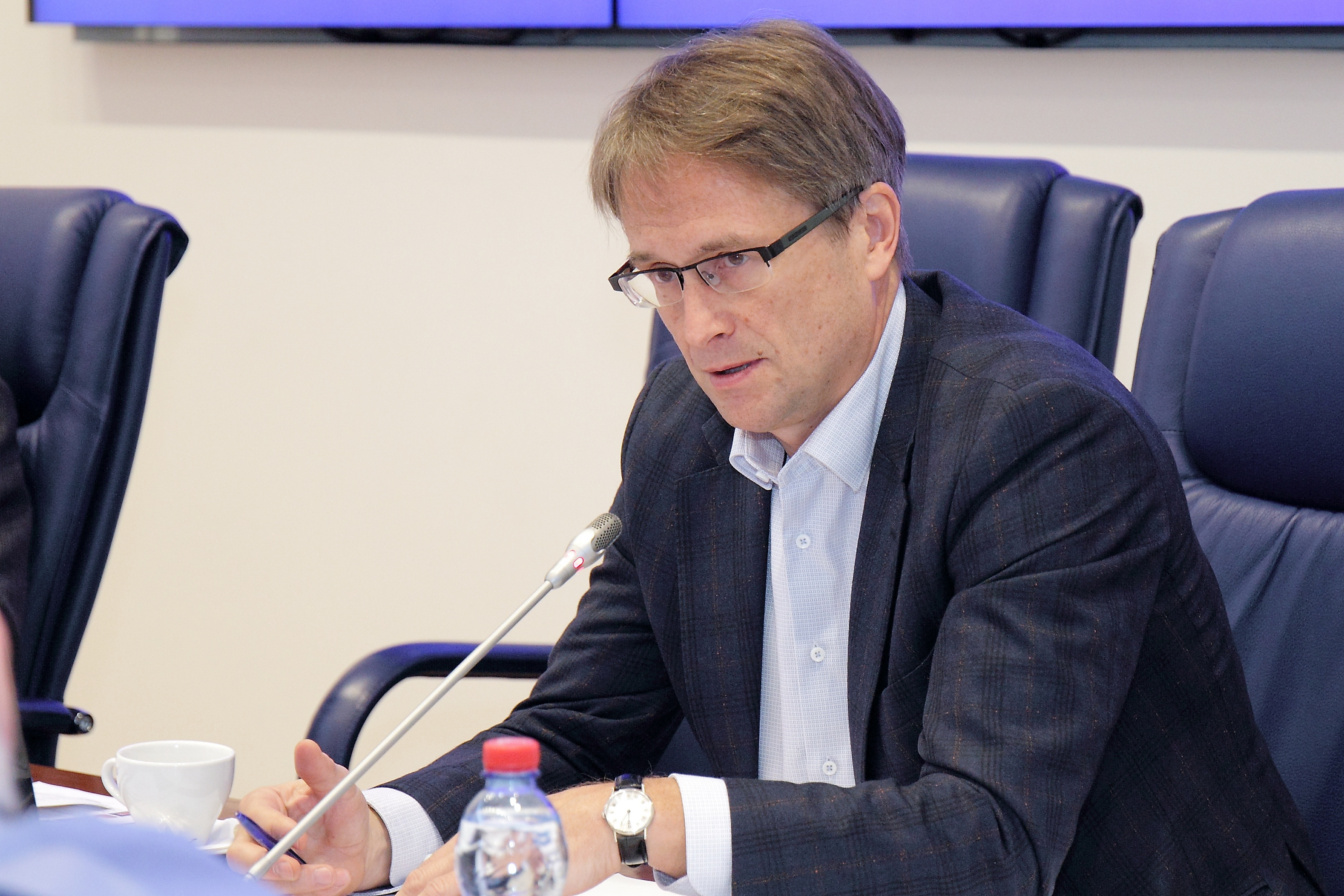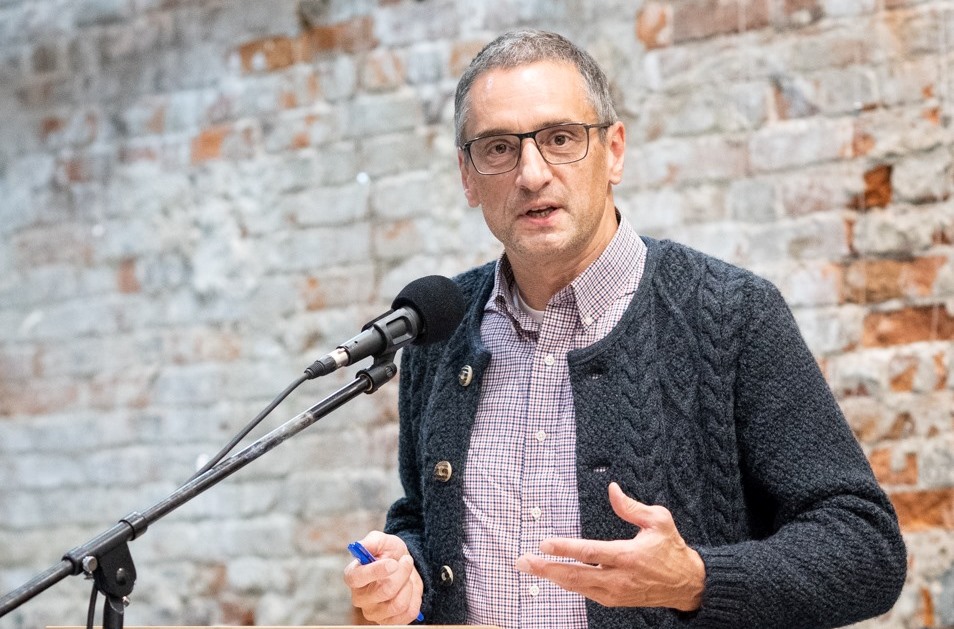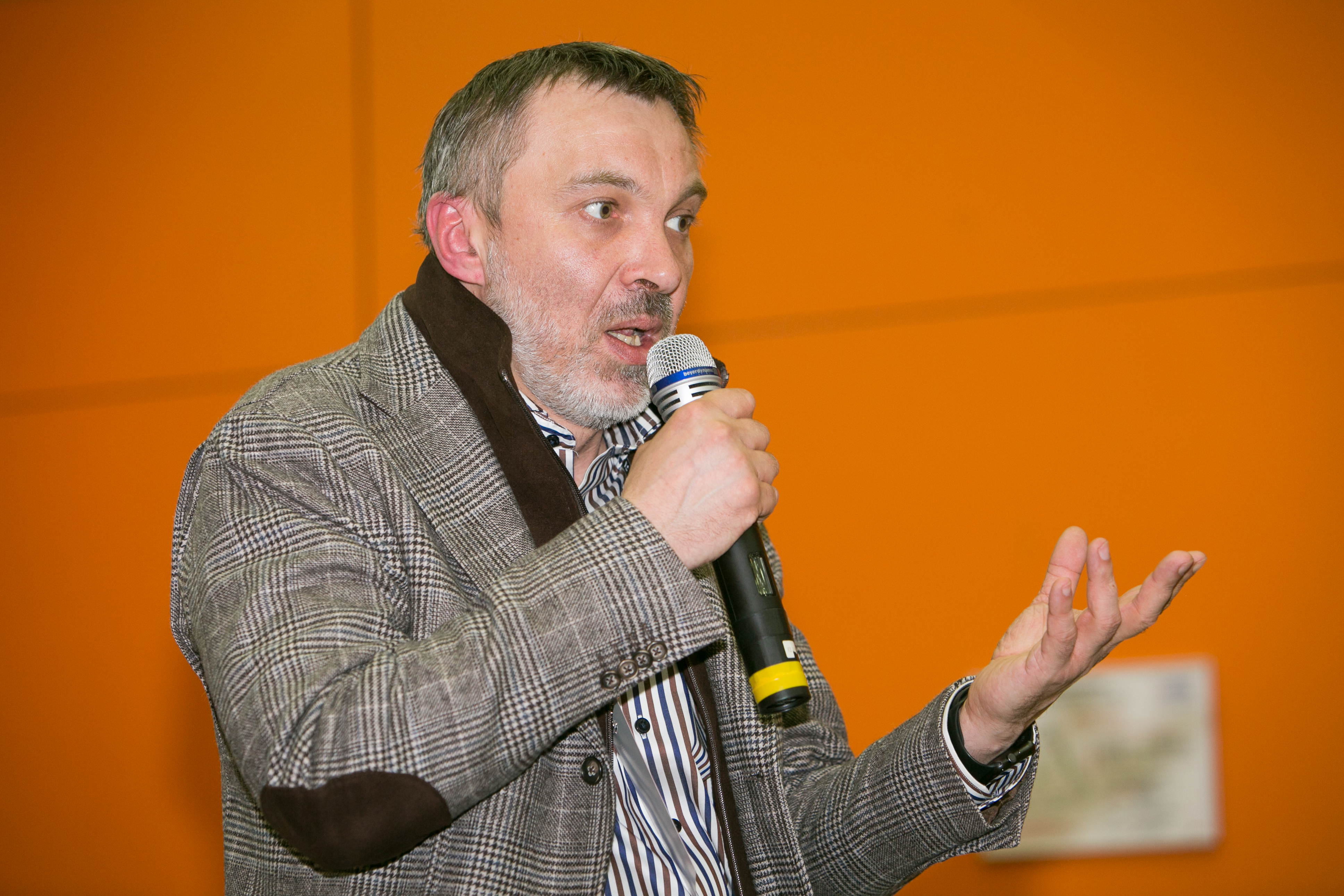‘People Cannot Accept That Threats Can Come from the Very Fact of Biological Evolution’

HSE University’s Laboratory for Studies in Economic Sociology has held its traditional Christmas Film Seminar. This year it was dedicated to one of the most discussed films of the year — Steven Soderbergh's prophetic Contagion. A report from our news service explains how the 2011 Hollywood blockbuster managed to predict the events of 2020, which generation will be most affected by the pandemic, and why reality has become fiction.
The Christmas Film Seminar is a New Year’s tradition at the Laboratory for Studies in Economic Sociology (LSES), which celebrates its 17th anniversary this year. Over the years, seminar participants have had time to discuss Andrey Zvyagintsev's Elena and The Return, Nikita Mikhalkov's 12, The Truman Show and even the TV series House. This year, for the first time, the film seminar was held online. Its permanent speakers presented their reports: HSE University First Vice Rector and LSES Department Head Vadim Radaev, Professor Vitaly Kurennoy, and historian and writer Sergey Medvedev.
Contagion was released in the autumn of 2011 (it was first shown at the Venice Film Festival). It is based on the story of the spread of a deadly virus and the attempts of the World Health Organisation and the U.S. Centers for Disease Control and Prevention to contain the infection. The film became popular in 2020 due to similarities between its plot and the development of the coronavirus pandemic.
Vadim Radaev on epidemics as the main scourge of humanity and people’s behavior in a stressful situation

Vadim Radaev, HSE University First Vice Rector and Department Head of Laboratory for Studies in Economic Sociology, began his talk by saying that in the history of mankind, epidemics have exceeded the mortality rate in any wars and the most devastating disasters (the Spanish Flu 100 years ago took two and a half times as many lives as the First World War).
‘”The only thing that seriously threatens human dominance on the planet is a virus,” said Joshua Lederberg, the microbiologist who won the Nobel Prize in 1958. And now we have to wonder if history is turning back,’ said Vadim Radaev, noting the relevance of the chosen film. ‘In the early 1970s, demographers proposed the idea that, since the mid-19th century, the main causes of death have changed and epidemics of infectious diseases are receding, giving way mainly to diseases of the circulatory system and cancer. That may be true, but let's look at what has already happened in the 21st century: SARS, bird flu, swine flu, Ebola, Zika virus, dengue fever, and now Covid-19. In fact, every year something has happened, it has made for a sense of introspection and demographers have considered again whether a reverse epidemiological transition is taking place. There's no way we can escape epidemics.’
First Vice Rector Radaev noted that, in 2011, the film released on the big screen went practically unnoticed, despite the stellar name of the director and no less stellar cast. This year, however, the film has gained popularity due to its incredible similarity to the events of the coronavirus era: ‘Let's look at the incomplete list of coincidences or foresight: the starting point of China, the disease’s origins in bats, the similar symptoms, a failure of the medical system and the organisation of temporary hospitals in large conurbations, the inevitable talk of biological weapons, calls for social distancing and appeals not to touch the face, the closure of institutions for quarantine and borders, cancelled flights, curfews, isolation of the infected, surveillance and sanctions on the isolated, panic and the mass buying of goods. And, as Anton Dolin said, “We now find ourselves in this film.” But these weren't just fantasies — the movie was made about another kind of coronavirus (called SARS), which originated in 2002 in southern China.’
But the main thing, according to Vadim Radaev, is not the medical side of the film and reality, but the behaviour of people in crisis situations. When an emergency occurs, the Vice Rector noted, there is a polarisation of people's attitudes and behaviour, and behavioural norms begin to blur and change in different directions. Indeed, in the context of the pandemic, people not only began to fear falling ill or losing loved ones, the whole world changed. ‘We used to think there were no borders, that the world was becoming increasingly global, and then we discovered that there are borders and, moreover, walls are growing: you can be trapped not only inside your country, but also in your own home or apartment. The main thing, in my opinion, is not the external limitations that emanate from the state or external freedoms; the main thing is probably some new self-imagined limitations and perceptions that arise from the fact that the world has turned out to be unsafe.’
It is precisely because of the sense of global insecurity, its opacity and the uncertainty of tomorrow that people have an increased demand for predictions of the future and the reasons for what happened. This is how conspiracy theories arise, rumours that the virus was launched by Bill Gates, or stories about the Freemasons, the Antichrist, and a scientist-led conspiracy. In addition, when the usual world order collapses, the moral boundaries of what is acceptable become blurred.
It all starts with a chicken [that was stolen in a supermarket] and ends with looting and pillaging. This is the unchanging plot of all the films we know. And it's a chilling notion that with all viruses the main threat still comes from people
The pandemic also affects intergenerational relations. For example, in the coronavirus crisis, Vadim Radaev said, it is not uncommon for the elderly to blame the young for acting freely, not changing their lifestyle, and, moreover, ‘the virus is presented as a conspiracy of the young against their elders, who lock themselves in their homes to free up jobs for the younger generation (there are such stories)’. At the same time, in the long run, it is young people who will be most affected by the pandemic: ‘Older people are more vulnerable physically, but more resilient psychologically due to their life experience. The more vulnerable will be those (younger millennials, Generation Z) who have experienced this traumatic episode during their formative years in accordance with generation theory.’
Vadim Radaev addressed another important aspect of the new reality: online education. He admitted that the transition to distance learning was relatively easy. ‘It turned out that we were ready, especially at HSE University: we have been investing for a long time, we have hundreds of online courses, almost 3 million enrolees on Coursera, and so on and so forth. We were already on our way there; the pandemic just forced everything. In some ways, we won: in flexibility, accessibility, and so on. There's a kind of euphoria about online education that comes from this.’ However, distance learning has not just advantages, but also disadvantages. ‘You can say different things, but it is still more convenient to study and work online. However, it does not mean that it is better. A university is not a conduit for the transfer of knowledge, it's a community of seniors (faculty and staff) and juniors (students and graduates), and building an online community is a difficult thing, no matter how hard you try.’ It's not so easy to work remotely, either, he added.
Sergey Medvedev on morality in politics and the modern societal structure of the United States

Historian and writer Sergey Medvedev (PhD in history) noted that the most interesting thing about Contagion is its predictive power. ‘The creators of the film had to work as analysts somewhere in the national security agency, they predicted so clearly what would happen nine years after the film’s release. They were able to analyse the modern world so clearly, the current situation in the United States, and to describe everything that is happening all around.’
Sergey Medvedev highlighted four main themes in the film: ecology, conspiracy theories, morality and the structure of American society (the film is devoted to the spread of the virus, primarily in the U.S.). As he notes, the film clearly shows the entire chain of infection, which clearly falls under the ‘green’ agenda.
‘The sources of all the viruses of the last 40 years, starting with AIDS, are our ever-closer invasion of wildlife. Here I’m recalling a quote by Joshua Lederberg, quoted by Vadim Radaev at the beginning of the seminar. And here we need to raise the question of the problem being the very domination of humanity in nature,’ said Sergey Medvedev. ‘Who really is the virus on Earth: the coronavirus, its various mutations, or humanity? This is a philosophical question. And viruses will keep coming: in the course of global warming, the expansion of human economic activity, and so on. We will get more and more viruses, which will become more and more aggressive. And one must understand that philosophically it is very important to see this as a kind of ecological imperative and a warning call from Earth to humanity: viruses are calls that keep coming to us from the wild.’
The conspiracy theme, according to Sergey Medvedev, is also related to ecology. The characters in the film (like real people in 2020) develop conspiracy theories about the origin of the virus ‘and they cannot imagine that any process is simply biologically and ecologically conditioned. They [the characters in the film] think that behind any external threat there is someone's evil will (corporate interests, government interests, foreign agents). People just can't accept that some things in the wild – some threats – can come from the very fact of biological evolution beyond human control.’
The third component of the film, according to Sergey Medvedev, is morality. In Contagion, a woman who commits adultery becomes Patient Zero on U.S. soil. This moral imperative runs through the whole film, because ‘America is in many ways a puritanical, religious nation, which stands on a strong moral foundation, and for all of Hollywood this moral complex is very important.’ In this, too, the historian noted, parallels can be drawn with 2020.
The whole topic of the coronavirus is about the struggle for human life. Is the Swedish experiment moral or amoral? What moral dilemmas arise in vaccine testing with accelerated testing protocols? Who should be given the first vaccines? Is it moral to weigh the price of human life between the price of unemployment and starvation? The coronavirus has dropped us into an incredible cauldron of moral choices
Moralisation, stressed Sergey Medvedev, has also touched contemporary politics and this is very dangerous. ‘Look at what is happening to the politics of memory, which unfolds around strong moral discourses (World War II, victory). These are things that 10 years ago were hard to imagine (we were struggling to double GDP, enter the WTO, etc.), but now suddenly a moral discourse has been introduced into politics. This is dangerous because morality is binary and dichotomous: morality is good and evil. If you are on the side of good, your opponents are in the black zone, on the side of evil. And the moralisation of political and social discourse leads to a strong polarisation of society.’
The fourth topic is the unexpectedly difficult situation with the coronavirus in the U.S., where the human casualties, according to Sergey Medvedev, are incommensurable with the level of the country's economic development and its medical care. As the speaker noted, this is due to the principles on which American society stands: great individualism, incredible mobility, true federalism (the absence of a unified strategy to fight the pandemic) and a free market, including in medical services.
Sergey Medvedev concluded his speech with the following forecast: ‘There will be a demand in the world for much more of a welfare state, for a more extensive and guaranteed provision of public goods, for serious redistribution schemes, perhaps partial nationalisation of the pharmaceutical industry and critical biotechnological industries that ensure national epidemiological security. Both leftist sentiments and “green” ones will grow on the global agenda. We are entering another difficult year of the coronavirus, but humanity will emerge from this situation with some new formats and practices and with a greater understanding of its vulnerability and naturalness.’
Vitaly Kurennoy on fiction and reality, experts and activists

‘The film Contagion is amazing in terms of how accurately it depicts everything that has happened and continues to happen in 2020. The whole new categorical apparatus that we have mastered in 2020 is completely contained in the 2011 film. The coincidences are simply staggering, because everything relating to protocols, social distance, fomites, working online, curfews, closing regions, everything is already there,’ Vitaly Kurennoy said. This applies not only to language, but also to specific situations related to the pandemic. The images we have seen on the news match those shown in the film down to the details: empty store shelves, empty gyms and airports, mass anonymous burials of people who died of infection. ‘I,’ the speaker noted, ‘am unaware of any other case of a feature film that is so prognostically accurate in detail.’
Such an accurate prediction appeared not due to the ‘genius of the filmmakers, but because of the powerful advisory support’ of scientists and experts. ‘This is a boring film and it was poorly received, precisely because it corresponds so closely, both in conceptual structure and in the nature of those events that may occur in such a situation, to what experts and specialists know about it. The film is as boring as possible precisely because it is intentionally as accurate as possible. However, the film simulates the situation of a more dangerous, more potent virus, which fortunately turned out not to be the case for us.’ Vitaly Kurennoy also considers the film ‘outstanding’ because it ‘concentrates on demonstrating the work of various institutions: law enforcement, healthcare, and others’, but also leaves room for a number of different personal stories.
One of the diagnosed acute problems in the film, according to the professor’s opinion, lies in depicting the contradiction between, on the one hand, specialists and experts and, on the other hand, public activists, bloggers, and public politicians. The activists' weapon against the experts is exposure and the search for compromising evidence. At the same time, an activist blogger himself claims to be an expert in everything.
And this is a phenomenon that we continuously observe on social networks. As soon as an event happens, everyone immediately becomes an expert on the topic. A pandemic starts, and suddenly everyone is an expert on the subject
Vitaly Kurennoy also pointed out an interesting philosophical problem that the film makes us think about: not only does fiction become reality, but reality also turns into fiction. ‘The film, shot in 2011, defines and formats our reality, but what we thought in 2019 [about the future] turned out to be fiction,’ the professor explained. ‘The situation exposes an important characteristic of the modern world. There is that old philosophical question, “How does a dream differ from reality?” Schopenhauer formulated it like this: dream and reality are pages of the same book, the difference between them is that some pages flicker chaotically, while others push their narrative further. If we look at the situation from this point of view, the film Contagion in relation to 2020 is a reality that scientists, specialists see, a reality that came to us from a feature film, then our real life suddenly began to flicker unpredictably and chaotically, and we found ourselves in a kind of dream.’
See also:
Totally Focused: Movie Nights at Pokrovka
In April, the HSE building on Pokrovka hosted two movie nights: one on the Day of Russian Animation, and other on the Day of Culture. The events allowed international students to get acquainted with Russian culture through works of cinematography. Each student enjoyed popcorn while studying detailed information about the movie on special printouts.
The Perfect Trap: How the Relationship between Humans and AI Is Transforming
Artificial intelligence is increasingly becoming an integral part of our life. We are now so used to its help and services that we get completely lost when we can’t connect to the internet. Could a person fall in love with AI? What will its humanisation lead to? These and other questions were discussed at this year’s LSES Christmas movie seminar, which was dedicated to Spike Jonze's film Her.
HSE University Hosts ‘Pint-Sized’ Film Festival
On August 21, HSE University’s Cultural Centre hosted the opening of the first ‘Pint-Sized’ student film festival. Over the next week, guests will be able to attend lectures from teachers of the HSE Film Institute and watch works by the festival participants. On August 27, at the closing ceremony, the winners of the Best Film, Best Screenplay, Best Directing, and Best Cinematography categories will be announced.
‘There Are a Lot of Personal Things Here That I Wanted to Talk About’
In early April, the KARO 11 Oktyabr cinema theatre hosted an official premiere of the film Flood directed by Ivan Tverdovsky, creative head of Screen Arts at the HSE Art and Design School. The film is based on the story of the same name by Yevgeny Zamyatin.
44th Moscow International Film Festival to Present Film by HSE Student
The Double Planet Theory, a film directed by fourth-year HSE Art and Design School student Savely Osadchy, is on the list of the main Short Film Competition at the Moscow International Film Festival (MIFF). The festival runs from August 26 to September 2 and features more than 230 films from 65 countries. Only two Russian films are taking part in the Short Film Competition.
‘Science and Art Coming Together is a Key Global Trend’
HSE University held a round table devoted to science documentaries. The participants discussed possible approaches to securing support for movie production and distribution, choosing topics of interest, and encouraging cinemas to show films about science.
Jarmusch, Tarantino, and HSE: Premiers at the Cannes Festival
On May 14, the 72nd Cannes Film Festival opens with Jim Jarmusch’s film, The Dead Don't Die. The official Russian delegation to the festival includes students of the Higher School of Cinema ‘Arka’, which offers joint continuing education programmes with HSE’s Faculty of Communications, Media, and Design. Students' short films will be shown as part of the annual almanac, Global Russians.
Documentary Produced by HSE Graduate School of Urbanism Premieres Online
‘Maison d'Être’ is an exploratory documentary about people's emotional place attachment in highly dynamic Greater Paris undergoing large-scale urban renewal campaigns. GSU documentary about Paris is now available online.
Alexander Zeldovich Joins the Design School Team
The Design School is launching HSE Film School, bringing together all educational levels: the BA in Film and Video-Art, Modern Art programmes, further education, post-graduate and MA studies. HSE Film School is led by renowned film director and screenwriter Alexander Zeldovich, who talks here about why contemporary film needs a new approach, what will be taught in the Film School, and why.
Renovation: What Moscow Can Learn From Paris
The HSE Vysokovsky Graduate School of Urbanism has made a documentary on renovation in Paris. In it, government officials, architects and residents of the Paris suburbs discuss social and urban projects changing the city. The film was shown on December 21 at Shukhov Lab.


